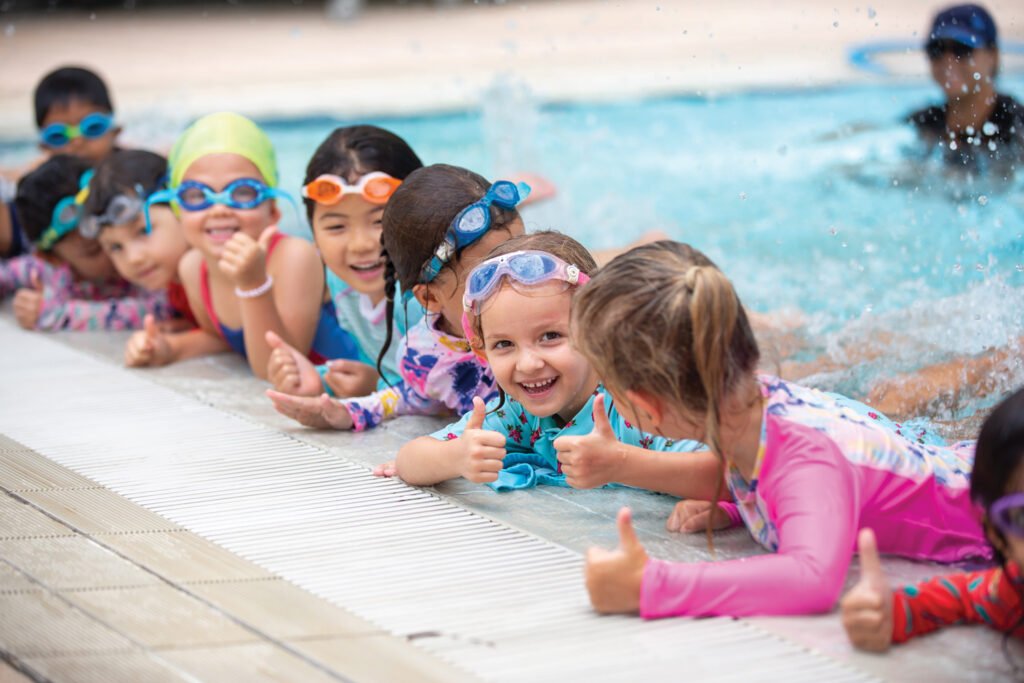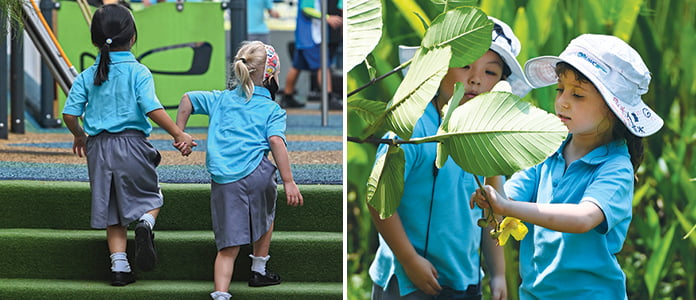- Sponsored Content

As children begin a new school year, perhaps in a new country or new school, it’s natural for parents to wonder how they can support them in building positive relationships with others.
Building and maintaining friendships plays an important role in helping children to develop emotionally. Not only do they learn how to communicate with others by enhancing their social skills, but healthy friendships are also instrumental in helping young people to learn how to control their emotions and express themselves constructively.
Check in
 If you’re not sure if your child has friends, or you’re concerned about their social skills, there are a couple of initial steps you can take. First, check in with their teacher to see how they interact with others. Also, ask your child questions that will give you a better idea of how well they’re mixing with others. For example, asking who they played with that day or what was the most fun part about school will reveal who they’re interacting with and how they feel about their peers.
If you’re not sure if your child has friends, or you’re concerned about their social skills, there are a couple of initial steps you can take. First, check in with their teacher to see how they interact with others. Also, ask your child questions that will give you a better idea of how well they’re mixing with others. For example, asking who they played with that day or what was the most fun part about school will reveal who they’re interacting with and how they feel about their peers.
Importantly, if your child seems content with the number of friends they have, avoid turning the concept of making new ones into a bigger issue than it needs to be. Some children are naturally more introverted and a few good friends is enough, while other more extroverted children thrive in a crowd.
Although friendship is an important part of life, not everyone is gifted at making friends. The good news is that friendship building is a skill that can be learned with a little effort, bravery and patience (on the part of both parent and child).
Be curious
 If you believe your child may like some support in friendship building, an important first step is to approach them empathetically. Rather than expressing judgement or concern, be curious: perhaps they feel nervous about initiating play with others or introducing themselves? Maybe they feel intimidated sitting on a new lunch table? Or are they more comfortable in their own space?
If you believe your child may like some support in friendship building, an important first step is to approach them empathetically. Rather than expressing judgement or concern, be curious: perhaps they feel nervous about initiating play with others or introducing themselves? Maybe they feel intimidated sitting on a new lunch table? Or are they more comfortable in their own space?
By taking the time to actively listen and paraphrase what they tell you, you’ll be able to better identify how your child feels and if they may be open to receiving guidance from you. Rather than assume they want help, a great entry point is simply to ask: “Would you like Mummy or Daddy to help?”
If the answer is yes, or even if their answer is no, read below for some simple practical strategies which you can share with – or at least model to – your child.

- Build conversation skills
Giving your child a few key conversation starters that they can use can build confidence. “What do you do for fun?” or “Who is your favourite superhero?” can be simple entry points for them to get into a new conversation with a potential friend. - Learn to listen
Can you help your child to be attentive to what is being shared with them? Can they have a follow up question in mind to show that they have listened, or a general statement that expresses interest? Active listening and modelling this is one of the best ways to help them. - Keep things considerate
Sometimes children can come across as overly assertive, and this can discourage others from engaging with them. To help them understand the value of being considerate of others, ask them questions like: “How does it feel when someone shares with you?” or “What games do you like to share with others?” - Be Hospitable
Simple acts like seeing a parent offer a cup of coffee to someone else, take an interest in a topic that the other person wants to talk about, and showing kindness are very powerful. Children learn more from what they see their parents do rather than what they hear them say. - Look for opportunities to meet up
Encourage your child if you notice them taking a step to initiate play with others, for example at a playground or park. If you’re concerned that they’ll be stressed about meeting new people, bring an ice-breaker – a toy, pet or snacks – to help draw other kids to your child. This is especially helpful if your child is not naturally outgoing.
UWC South East Asia
Dover Campus: 1207 Dover Rd, Singapore, 139654
East Campus: 1 Tampines Street 73, Singapore, 528704
www.uwcsea.edu.sg
[email protected]








